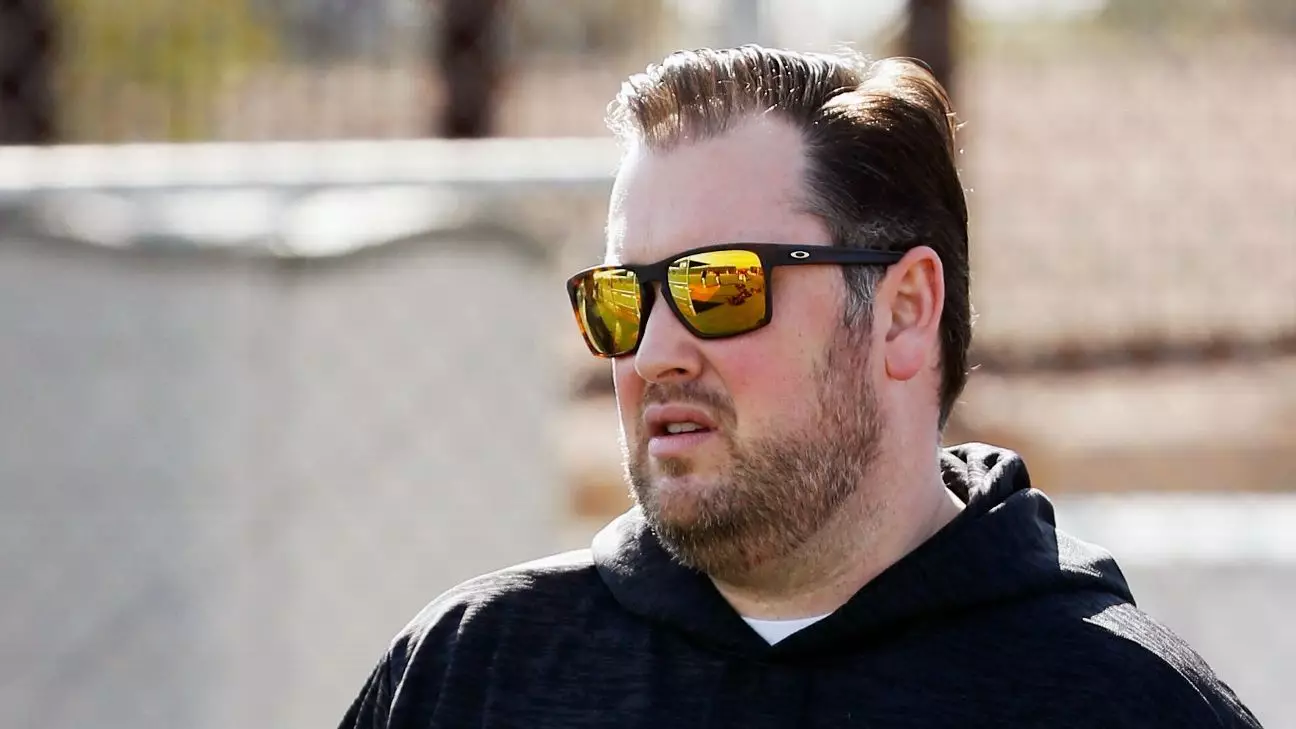In the world of sports management, where public perception and personal conduct significantly influence professional trajectories, the fallout from Jared Porter’s inappropriate actions serves as a stark reminder of the consequences of misconduct. Porter’s admission of sending sexually explicit messages to a female reporter while serving as a Chicago Cubs executive not only led to his dismissal from the New York Mets after a brief tenure but also highlighted systemic issues of accountability within sports organizations.
Confession and Accountability
During a recent appearance on the “Baseball Isn’t Boring” podcast, Jared Porter publicly confronted the scandal that ended his career as a major league general manager. Porter’s acknowledgment that he crossed moral and professional boundaries speaks volumes about the necessity for leaders in sports to maintain a level of integrity that extends beyond transactionally-oriented relationships. He expressed deep remorse, stating, “It was an inappropriate relationship for a lot of reasons,” thereby recognizing the multifaceted nature of his misconduct; it was not only damaging to the reporter involved but also to his professional reputation and the organization he represented.
Reflecting on the gravity of those actions, Porter communicated feelings of fear and shame that overwhelmed him after the news broke. This acknowledgment of vulnerability indicates growth, yet raises questions about the foresight and preventative measures in place that could have potentially mitigated such an incident.
The Chain of Events Following the Incident
Porter’s journey following his firing illustrates the transformative process that often accompanies public disgrace. After the New York Mets dismissed him within hours of the ESPN report—an expected move considering the severity of the allegations—Porter took a significant step towards personal recovery by seeking treatment. His experience offers a dual narrative: one that encapsulates egregious misconduct while also portraying a path to redemption.
His admission of entering The Meadows treatment center for emotional trauma showcases not only the mental health challenges faced by professionals in high-pressure environments but also counters the stigma associated with seeking help. By sharing that he was monitored under strict conditions—“I wasn’t allowed to have shoelaces in my shoes until I was deemed not to be a suicide threat”—Porter humanizes a struggle that is often overlooked within the competitive landscape of professional sports.
From an organizational standpoint, the case of Jared Porter raises critical questions about the vetting processes during hiring, particularly amid the unique challenges presented by the COVID-19 pandemic. Porter’s admission that he never had a direct meeting with Mets owner Steve Cohen or any opportunity to walk the halls of Citi Field indicates a disconnect that may have impaired a holistic evaluation of his character and professional integrity.
Furthermore, the rapid dismissal following the report suggests that the Mets, under the guidance of Steve Cohen and team president Sandy Alderson, prioritized an image rehabilitation and a commitment to ethical standards in their operation. While this decision reflects a commitment to high standards, it also raises the concern of how well organizations prepare for potential crises and how they respond when they arise.
Porter’s story does not end with his dismissal from the Mets, however. His ongoing commitment to mental health advocacy through the establishment of Blend, a company aimed at supporting young athletes acquire mental health skills, demonstrates his aspirations for positive change in a culture often criticized for neglecting psychological well-being.
As the sports industry continues to grapple with issues of personal conduct and the accompanying fallout, Porter’s reflections serve as a critical reminder of the need for comprehensive support systems for players and executives alike. Mental health should not only be a private struggle but a collective responsibility shared by leagues, teams, and their stakeholders.
In concluding this narrative, it is clear that Jared Porter’s journey is both a cautionary tale and an emblem of potential redemption. The implications of his misconduct reverberate through both his personal life and the wider culture of professional sports. Ultimately, accountability and healing must go hand-in-hand for a sustainable approach to leadership and personal conduct within this domain, indicating a strong need for enduring conversations around ethics, mental health, and organizational responsibility in the sports arena.


Leave a Reply